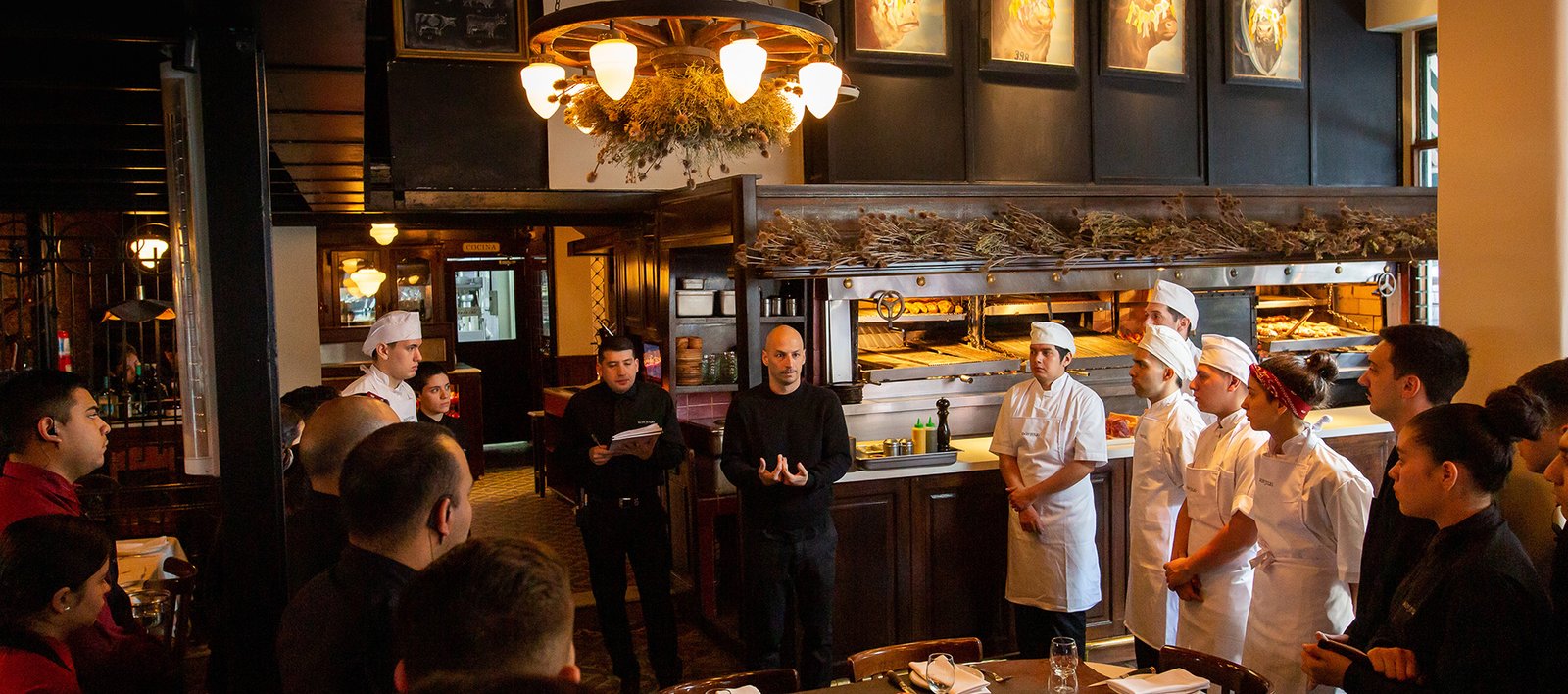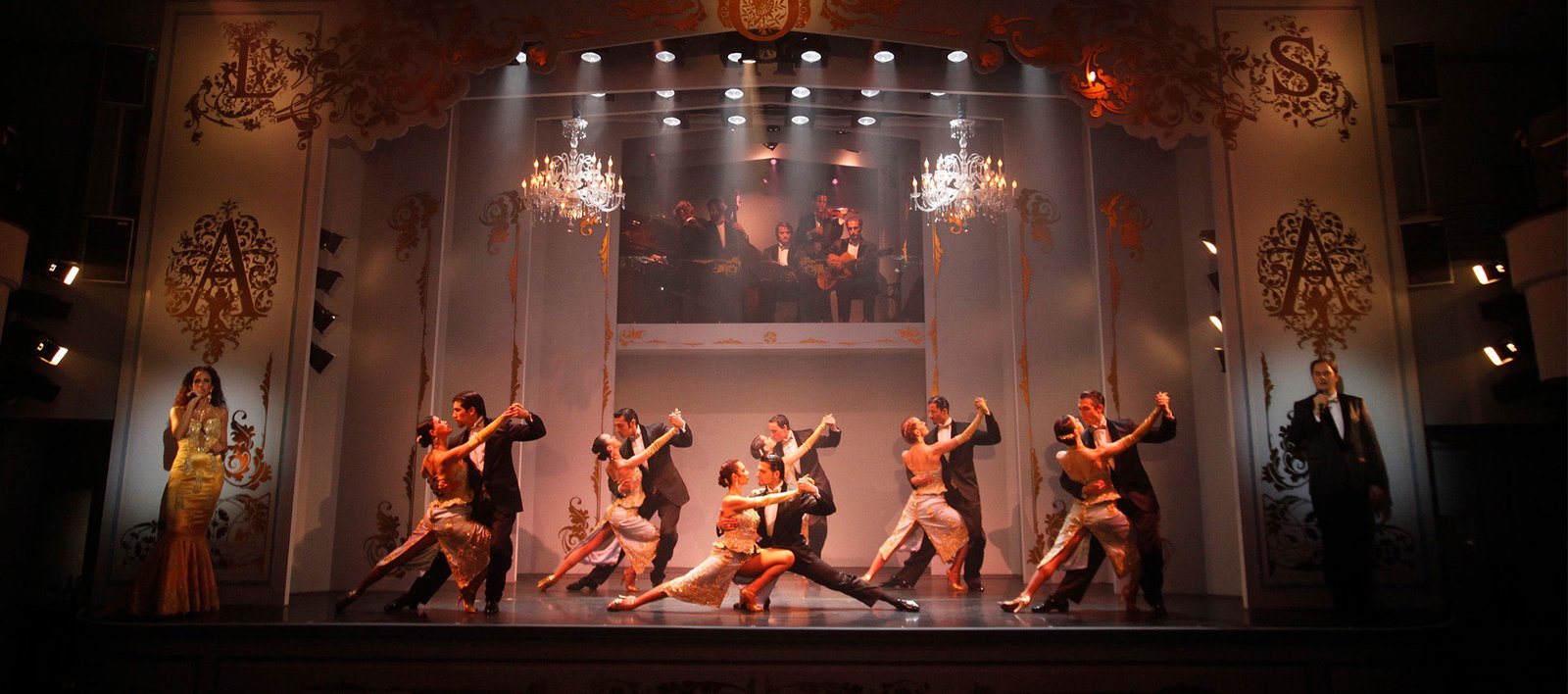
Don Julio: Fire, Meat, Wine, and Affection
Pablo Rivero, head of the Don Julio grill in the Palermo neighborhood of Buenos Aires, exudes deep pride when he speaks of their great milestone: becoming the best restaurant in the country without stopping being the neighborhood’s grill.
By Alexa Carolina Chacón
Photos: Cortesía Don Julio
Pablo Rivero found that the key to moving forward is in looking back. A paradox. He sought to master an ancient trade in order to perfect it; he was so successful his only option was to be on top of the world. When asked why his Don Julio grill, founded 23 years ago with his parents and grandmother, is the second best restaurant in Latin America (according to 50 Best) and the best grill in the world (according to World Best Steak Restaurants), his answer is very simple: quality and tradition. These things are present not only in the raw materials, which are the canvas upon which the history of Don Julio is written in golden ink, service after service, but also in the processes he uses. He also has absolute respect for the profession and the non-negotiable steps of grilling, which every Argentine knows very well.
Pablo recognizes the responsibility that comes with being the head of a grill in Buenos Aires, especially in a neighborhood like Palermo. He exudes deep pride when he talks about the work the grill has done consistently for more than two decades. Nothing is invented at Don Julio. They use familiar ingredients made with love. It is a world-class restaurant with a homey vibe.

To what do you attribute Don Julio’s success at the national level and beyond the country’s borders?
In Argentina it has to do with the trajectory, with the number of years, with the neighborhood where we’re located, and with the fact that it’s a popular genre. In general, grills are popular in Argentina. They are the type of restaurant that attracts the most people. Even when they don’t serve hordes of people, grills are still successful because they’re like a soccer club, a neighborhood club. Everyone’s neighborhood grill is a beloved spot. Internationally, it’s simply the recognition of what Argentina means to the world, which has to do with meat, with wine, with our tradition.
Speaking of the neighborhood, Palermo is almost a main character in Don Julio…
Palermo Viejo was once a marginal neighborhood. It has changed, but without losing its essence: its people are still there. The neighborhood is in the center of the city and, one way or another, everyone has to pass through it. It also preserves a spirit, an aura of the history of Buenos Aires. And it’s constantly being colored by everything that happens to us Argentines. We’re a restless people, with new things to do. Palermo is a bit like that too. It’s a place where you find people who struggle to pay the rent every month right alongside people who could pay everyone’s rent. The doorman is as important there as any other person, perhaps more so, and it’s a place that people tend not to move away from. The neighbors try to live their whole lives there. People there feel that Palermo is the best neighborhood in the world. And we’re lucky to be their neighborhood grill. It’s also home to La Huerta, located in what was a cement square, which we recently took over. Unsafe things were going on there, but we managed to recover the space and we helped get the neighborhood involved in the La Huerta garden project. Everything harvested from the garden is donated to entities that the local government chooses. Everything stays in the neighborhood.
How does Don Julio handle the Argentines’ preference for their own home cooking (as compared to “eating out”)? (My Argentinian friends consider their homemade barbecue to be incomparable.)
When you asked that question, an incredible, powerful concept came to mind. I thought of Chombasia cooking (a culinary term invented by Panamanian chef Mario Castrellón), which is a fusion of Chinese and Afro flavors generated by the history of the country (Panama). I find that incredible. Something similar happened to us in Argentina. We’re surrounded by fields, cattle, fire. There’s a griller in every Argentine. And the whole country lives that culture. When you were little, your father would barbecue and you’d collect sticks for the fire. Then he’d let you light it. Then you’d watch over it, and at some point, your dad would be drinking wine and you could start grilling. It is the barbecue cycle that happens in every home. It’s so hard to satisfy Argentines because they know how to do it themselves. It’s a challenge when we cook for an Argentine, which is why we’re so pleased that Argentines are happy with what we do.

I’ve read how important raw materials are to you. What makes Don Julio’s special?
Our special thing is that we work with the most important food in the history of mankind. And we’re lucky to be in Argentine territory: an immense plain, where cattle are raised in a unique way. Capturing carbon and regenerating soils help the environment, contrary to everything that people say about meat. We have a positive carbon footprint and a 200-year history of serious production, in addition to 100 years of genetic work with British breeds, which has led to an extremely high-quality product. In fact, Argentina celebrates an annual rural fair attended by buyers of genetics from all over the world. That’s what makes Don Julio special: we select what we consider to be the best of what Argentina does. We just serve from the culinary landscape at hand; we serve from the best that our geography has to offer.
What’s the balance between tradition and innovation? How much do you experiment in the kitchen at Don Julio?
We never set out to try to be innovative, or generate a “wow factor.” Our goal is to lift our cuisine, culture, and roots to their maximum expression. We look back at what came before to recover the origins of certain recipes and ways of producing. And that, coincidentally, has brought us a long way. We began to understand that it wasn’t possible for a herbivore (livestock) to be the cause of environmental problems. We started to investigate and found that it is about how the meat is produced, not the herbivore. Our current project is regenerative livestock farming, which means you are supporting carbon capture and soil regeneration every time you eat a piece of meat at Don Julio. We didn’t get there by trying to be innovative; we got there by doing a better job.
hat does Pablo Rivero say to a diner who asks for a well-done steak?
If that’s how you like it, that’s fine, but I’ll also tell you the best way to eat the cut you choose. If you eat it less cooked, you’ll enjoy it much more because you’ll feel the quality of the product. But it’s up to people to choose for themselves; you don’t have to be anyone’s teacher.


Leave a Reply